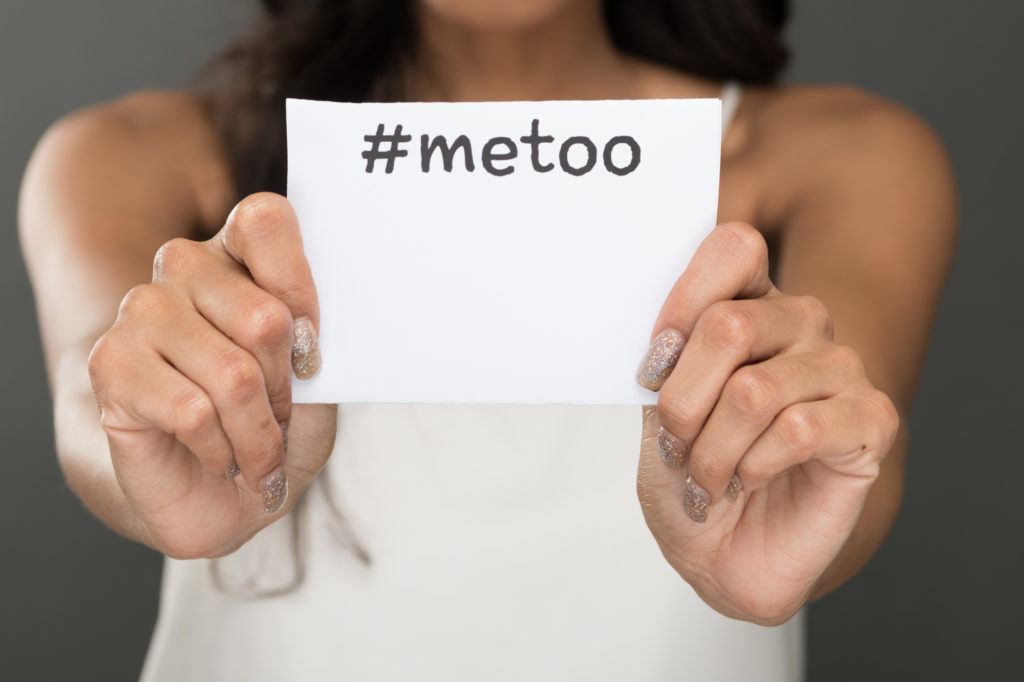
An extraordinary percent of people experience sexual harassment in the workplace, but did you know that roughly 90% of sexual harassment victims do not file a formal claim?
It’s easy to find yourself feeling at fault for a sexual harassment incident. Maybe you led them on or wore too much makeup. For years, society has made people feel like it’s always the victim’s fault.
Sexual harassment is not your fault.
I repeat.
Sexual harassment is not your fault.
There is no circumstance where the victim of sexual harassment is at fault. You might feel confused or conflicted, especially if the violator is a friend or a boss. The fear of retaliation is one of the biggest reasons victims do not file.
“What if he isn’t my friend anymore?”
“What my boss makes my work life miserable, or if I get fired?”
These questions are all very common. In this article, we will go over what counts as sexual harassment, and what you can do about it.
Don’t be a silent victim, read on.
What Is Sexual Harassment?
Sexual harassment has always been a problem in the workplace. Sexual harassment, in a nutshell, is unwelcome sexual conduct that creates a hostile work environment.
The U.S. Equal Employment Opportunity Commission (EEOC) defines sexual harassment as “It is unlawful to harass a person (an applicant or employee) because of that person’s sex. Harassment can include “sexual harassment” or unwelcome sexual advances, requests for sexual favors, and other verbal or physical harassment of a sexual nature.”
Identifying sexual harassment can be difficult for many reasons. The victim might feel confused, hurt, or otherwise scared.
Many people confuse sexual harassment with sexual assault. Unwanted physical conduct is what separates harassment and assault.
Sexual assault may be seen in many forms. These are just a few examples:
- Attempted rape
- Penetration of the victim’s body
- Unwanted sexual contact or touching
- Forced sexual acts against the victim, such as folding or oral sex
We know that sexual harassment involves sexual intentions and behaviors, but psychologists suggest that it’s not always about sex. A person who harasses another person emits controlling behaviors. That person may also communicate aggression and hostility. While some may just want the attention, others feed off of your insecurities.
No matter the intention or the excuse, sexual harassment is illegal and unethical.
What Counts as Sexual Harassment? A Few Examples
Sexual harassment can occur on or off work hours, during work parties or gatherings, or even over the phone on business calls. There is no one way to be harassed. It shows itself in many forms.
Here are a few example situations for sexual harassment:
Scenario 1:
Let’s call the person A Emily and person B John. Emily works as a barista at a local coffee shop. John, her coworker, has started requesting to have the same shifts as Emily. Emily is married with two children.
John likes to jokingly slap Emily on the butt when he passes her. She has expressed to John that she is married and is uninterested in him. When Emily tells him that she doesn’t like his behavior, he responds with, “Common baby, it’s just a joke. Everyone else thinks it’s funny. Don’t be so serious.”
Is this sexual harassment?
Absolutely. John is attempting to make Emily feel like it’s her fault she is being harassed. Emily may feel that if she reports him then he won’t be her friend anymore. She may think, “Maybe he doesn’t mean it in a bad way.”
Either way, this situation is sexual harassment and it inappropriate.
Scenario 2:
Now let’s call person A Sam and person B Marissa. Marissa is Sam’s supervisor. Sam has noticed that Marissa makes lewd comments about it more often than not. This morning she said that he “walked around like a gay person” and the other day she said that his hair “made him look like a faggot.”
Sam is scared to say anything because she is his supervisor.
Is this sexual harassment?
Yes. Even though many people may not believe that men can be sexually harassed, it can and does happen. In this scenario, Sam should go to his manager and report his supervisor.
Sexual harassment does not have to be touching. Verbal harassment is still harassment, and it’s just as harmful.
5 Steps You Should Take if You’re Being Sexually Harassed
You don’t have to be the victim to report inappropriate behavior.
Have you ever heard of the term bystander effect? In a nutshell, the bystander effect occurs when multiple people witness an incident. Everyone thinks that someone else will report the incident, so no one actually reports it.
If you see someone being harassed, don’t let the bystander effect stop you from doing the right thing.
Remember to always CARE.
C – Create a distraction. Do whatever you can to stop the current harassing. Be careful not to put yourself or the victim in any danger. If the violator is showing signs of aggression or violence, do not insert yourself into the situation.
A – Ask the person who is being harassed how they are feeling. It may not be appropriate for you to report behavior just because you think it’s harassment. The behavior may be welcome by the victim.
R – Refer to an authority figure. This is the safest way for you to report a harassment case of any kind, sexual or not. You can anonymously report the incident if you’re uncomfortable. Try typing a letter and slipping it into the office of the authority figure.
E – Expect the victim to be scared or confused. You may experience some backlash from the victim at first. They may feel embarrassed and take it out on you. Give them space and time to process everything.
When to Hire an Attorney
When all else fails, turn to the attorney. Sexual harassment is not something to be taken lightly. It is not a joke, and it’s very illegal.
Before you go looking for an attorney, you should bring the incident to the attention of your HR department. Ask your supervisor for the information if you do not have an on-site HR representative at your workplace. If you are uncomfortable talking to your supervisor about the incident, or if the supervisor is involved in the incident, try looking in the breakroom for HR information. Most offices will have the information posted in employee areas. This might be the break room, employee lounge, kitchen.
If you have brought the situation to your supervisor or HR department and you feel as though nothing has been done to rectify the situation, it may be time to seek out legal advice.
Sexual harassment attorneys work with you to make sure that you are always in a safe, comfortable work environment.
Here are a few questions you should remember to ask your attorney:
- Can I openly discuss the investigation, or does it need to be kept secret until it’s finalized?
- How far will this claim go, and how long will it take?
- Does my employer have a time limit to take action for this claim?
While it may be sad to say, if the harassment has come to the point that you need to get an attorney involved, it might be time to start looking for another job. Finding a new job will help lower your stress levels, and overall keep you happier and healthier.
Remember, It’s Not Your Fault
Sexual harassment happens every day to many people. Not only does it affect you physically, but harassment can take a toll on you mentally and emotionally.
Emotional feelings you might experience could include feelings of regret, anger, fear, shame, or betrayal. Mental side effects might include anxiety, PTSD, panic attacks, depression, or even suicidal thoughts.
After you’ve determined what counts as sexual harassment, you may need to consider seeing a therapist or psychologist. They can help you work through your feelings and understand what happened, and why it happened. Many people feel like sexual harassment is their fault. A therapist will help assure you that you are not at fault.
If it’s right for you, ask your lawyer to recommend a good therapist. They should have contacts with local doctors to help you work through everything.
Remember that it’s okay to be scared, confused, anxious, or even angry. What you are feeling is completely normal.
If you are a victim, you are not alone. Remember that if the harasser does it to you, they will do it to someone else. Stop the cycle. Report sexual harassment.
You should never have to work in an environment that is unsafe or hostile.
We are dedicated to keeping you safe and informed. Stop by our blog page for other helpful health and wellness information.

